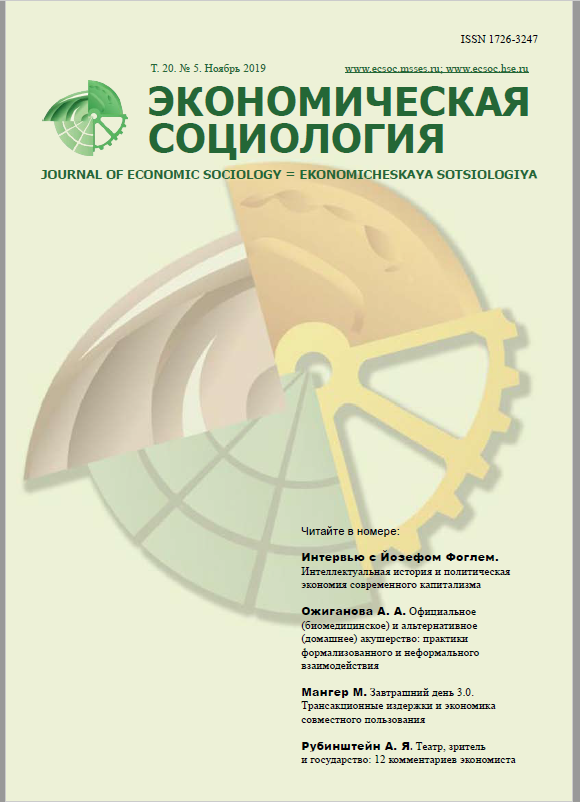The Theatre, the Audience and the State: Twelve Economist’s Comments
Abstract
Rubinstein’s article presents the results of the “First All-Russian Sociological Survey of Theater Audience,” which covered all Federal Districts and constituent entities of the Russian Federation (about 200 cities), in which more than 90% of all professional theaters are registered. More than 12,000 respondents expressed their opinions by answering a special questionnaire posted on the sites of the regional branches of the Union of Theater Workers, special theatrical tickets, and their own theatre sites, as well as several higher educational institutions. For the first time, this work reveals the preferences of the public, from their attitudes toward the repertoire posters of Russian theaters and traditional and innovative productions to the creative composition of theaters and their functions, including performances in movie theaters. A fundamentally new result is a measured audience assessment of the creative potential of Russian theaters, which made it possible to find the reasons that impede its full implementation. The obtained sociological information characterizes the assessments and behavior of the theatrical audience. The results of economic analysis, using official statistics, made it possible to view the whole process of creating performances comprehensively look at the whole process of creating performances and their public demonstration as well as the production and consumption of theater goods, including the relationship between state and municipal theaters. Their founders, who are fulfilling their budgetary obligations, finance theatrical activities. It is known that due to budgetary underfunding of theaters and the commercialization of their activities, which caused an inflationary increase in ticket prices, about 30% of the audience experience financial difficulties in attending performances. Students and pensioners “suffer” most of all, which not only worsens the quality of their life but also harms the growth of the theater’s audience. Based on the construction of the econometric model, recommendations were formulated, aimed at creating conditions for the complete realization of theatrical potential and an increase in attendance.













